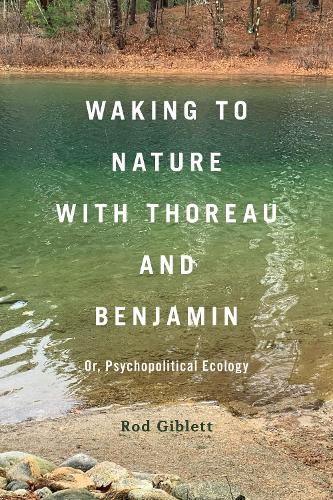
Waking to Nature with Thoreau and Benjamin: Or, Psychopolitical Ecology
(Hardback)
Publishing Details
Waking to Nature with Thoreau and Benjamin: Or, Psychopolitical Ecology
By (Author) Dr Rod Giblett
Bloomsbury Publishing USA
Bloomsbury Publishing USA
1st May 2025
United States
Classifications
Professional and Scholarly
Non Fiction
Literary theory
Literary studies: fiction, novelists and prose writers
Environmentalist thought and ideology
818.309
Physical Properties
Hardback
232
Width 158mm, Height 232mm, Spine 20mm
480g
Description
What do two white men born in the century before last have to say that could possibly be of any use or value in the current conjuncture of climate collapse, the end of the age of fossil fuels and much life on earth, and the recent re-rise of reactionary forces against progressive politics Turns out, a lot, especially for waking to nature, place, life, social injustice, environmental destruction, industrial capitalism and its technologies. Henry David Thoreau an inspiration for William Melvin Kelleys writing on staying woke and Walter Benjamin suggest sensory means for waking the consumer asleep under the phony spell of the putrid magic of the commodity; provide tools of theory and instruments of critique for waking to sexism, racism, and placism; empower the weak with a vocabulary vital for telling the stories of people and places; create resources of hope for the future in places and the past; put limitations on the prospect of the future being overcome by despair, and; point to pathways for being at home with the living earth. Waking to Nature with Thoreau and Benjamin discusses topics both writers share in common, such as memory, dreaming, waking, walking, water, swamps, lakes, the body, and the senses, and highlights convergences and divergences between them. It brings together these two timely thinkers for whom life is the union of materiality and spirituality, offering a first book of Thoreau and Benjamin studies, a branch of new growth for all those who love life and the living earth.
Author Bio
Rod Giblett is Honorary Associate Professor of Environmental Humanities at Deakin University, Australia, and author of Modern Melbourne: CIty and Site of Nature and Culture (2020) and Cities and Wetlands: The Return of the Repressed in Nature and Culture (Bloomsbury, 2016).
